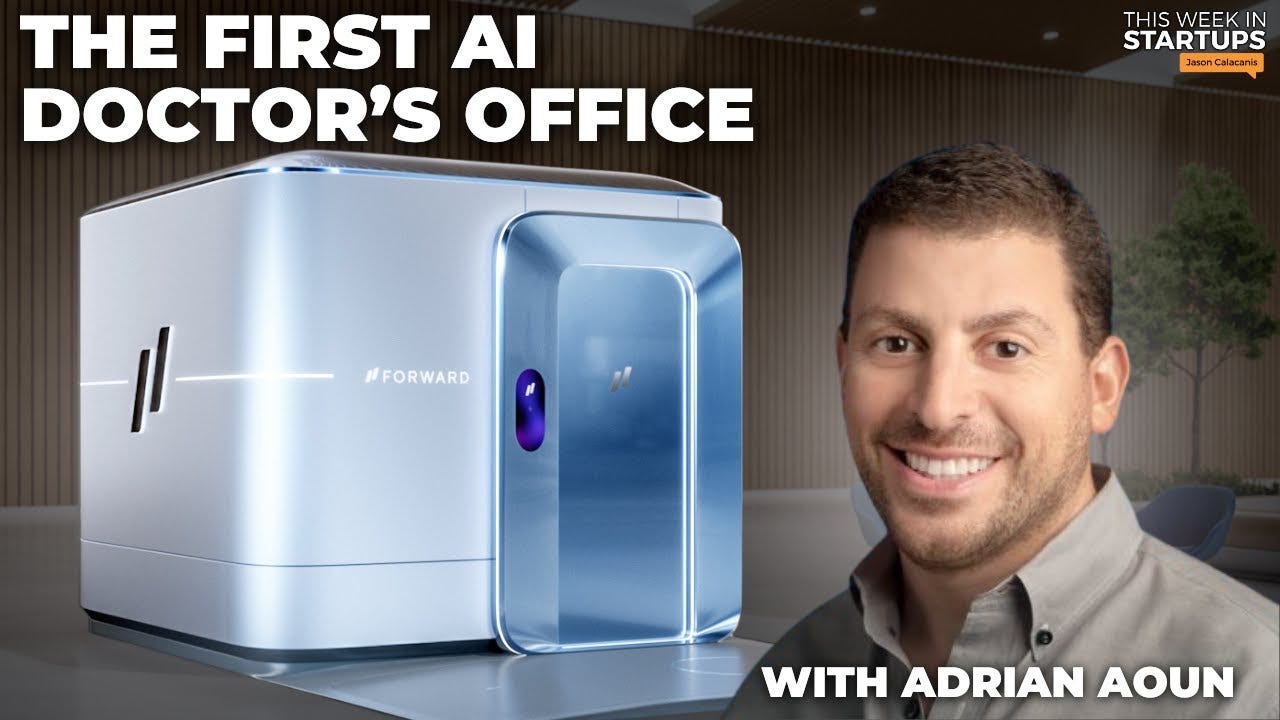AI for Health
DxGPT, Health AI Start-ups and Flo Health
Two days ago, Microsoft’s CEO Satya Nadella unveiled DxGPT, a non-profit health diagnostic tool powered by Azure’s GPT-4o, designed to tackle clinical diagnostics with a keen eye on rare diseases.
The launch was met with fervor. Within hours, DxGPT buckled under a deluge of users, crashing the app and making it slow to load even two days after Satya’s announcement.
But with all the noise of the modern world, from politics to tech, most have failed to notice that the site’s slow performance was/is a “tell” and a revelation: the public’s response underscored a deep, unmet need for accessible, AI-driven healthcare solutions.
Healthcare today is a paradox: information abounds, yet clarity remains elusive. Patients endure long waits for specialist consultations, misdiagnoses plague the system (studies suggest up to 12 million Americans are misdiagnosed annually), and rare diseases, affecting 1 in 10 people globally, often go undetected for years.
DxGPT’s crash wasn’t a stumble; it was a stress test, proving that people are ready to embrace AI as a lifeline in this fractured landscape. The question is no longer if AI will transform healthcare, but how fast and who will lead.
DxGPT’s crash wasn’t a stumble; it was a stress test, proving that people are ready to embrace AI as a lifeline in this fractured landscape.
The contenders are many. One such stealth contender is reportedly a high-profile Founder, Adrian Aoun, who, after burning through $400M in funding for his previous healthcare company, Forward, is apparently now building (or so the word on the street) a new healthtech AI stealth start-up.
While I wish Adrian and his start-up luck, one has to wonder where and who actually has the magic “moat” in Healthcare?
Enter Flo.health
Amid this fervor stands Flo.health, a juggernaut in women’s wellness with over 50 million active users and 200 million downloads since its inception, and its unusual founder, Dmitry Gurski:
Dmitry is everything that Adrian is not (and vice versa):
Adrian studied Computer Science (and Psychology) at one of the most expensive schools in the country, the University of Southern California; Dmitry studied Pharmaceutics at the university for, mmm, well, at Belarusian State University 😅
Adrian is one of the most fluent communicators in Silicon Valley; Dmitry is a heavy-accented Eastern European whose words are often hard to grasp
Adrian is a boilerplate “Silicon Valley”. No talk of his misses an opportunity to drop names like Larry Page, Max Levchin, Marissa Mayer… Dmitry talks about his time collecting potatoes as a kid growing up in Belarus, and does NOT live in Silicon Valley (lives in the U.K.)
Adrian is a Corporate veteran (White House, Microsoft, Google); Dmitry never worked for anyone other than himself.
It is hard to think of Dmitry and an app that tracks menstrual cycles as part of one sentence 🤯, but here we are: The future of Healthcare. (Don’t believe me - be sure to check out their Series C Deck👇🏽)
Flo’s app tracks menstrual cycles, fertility windows, and symptoms, creating a rich tapestry of data that’s both granular and global. Unlike DxGPT’s narrow diagnostic focus, Flo’s mission is expansive: to empower women with insights into their reproductive and overall health. Their dataset spans continents, age groups, and lifestyles. It is a treasure trove with untapped potential - THE MOAT.
Flo’s edge lies in its ability to move beyond generic tracking, such as cycle predictions or ovulation alerts, into personalized, predictive care. Basically an app that not only logs your symptoms but correlates them with environmental factors or lifestyle habits, offering deep recommendations.
Flo.health Series C Fundraising Deck Preview (Full Deck👇🏽)
Interested in full access, including Flo’s Series C 53-page fundraising deck? Subscribe for our deep dives and receive access to the full paid content.




Flo has the pieces; the challenge is assembling them into a picture users can’t ignore.
AI’s ascent in healthcare is no flash in the pan. The past decade has seen titans wrestle with the promise and pitfalls of intelligent systems. Today, adoption is accelerating: a 2023 Deloitte survey found 75% of healthcare leaders plan to invest in AI within two years. DxGPT and Flo.health are not outliers - they’re harbingers. But where DxGPT narrows its lens, Flo casts a wider net, reflecting two sides of the same coin: precision versus personalization. Both must navigate a public eager for solutions but wary of overreach.
Flo.health’s Data Advantage
Flo.health’s dataset is a marvel: millions of women logging cycles, symptoms, sleep patterns, and more, often daily. This isn’t static data, it’s dynamic, revealing trends over time and across populations. With over 50 million active users, Flo commands a sample size that rivals clinical studies, dwarfing the datasets of most health-tech startups. Herein lies their superpower: the ability to craft insights that feel intimate, not impersonal.
Consider the possibilities. A user logs irregular cycles and fatigue; Flo could cross-reference this with millions of similar profiles, factoring in age, location, or even seasonal shifts, to suggest a hormonal imbalance before a doctor’s visit. Or take fertility: Flo could predict ovulation windows with uncanny accuracy, adjusting for stress or diet logged via integrations like Fitbit. Today, Flo offers broad advice, “stay hydrated” or “rest more”, but their data could power a leap to “your cycle suggests X, try Y.” This is personalization as a promise, not a buzzword.
Yet scale alone doesn’t win. The AI must be smart - smart enough to distill noise into signal. Flo’s current offerings are a foundation, but the next step is algorithmic sophistication. Partnerships with medical researchers or AI specialists could unlock this, turning raw data into a competitive moat.
The Privacy Tightrope: Lessons from 23andMe
Keep reading with a 7-day free trial
Subscribe to Mir's .Report to keep reading this post and get 7 days of free access to the full post archives.







